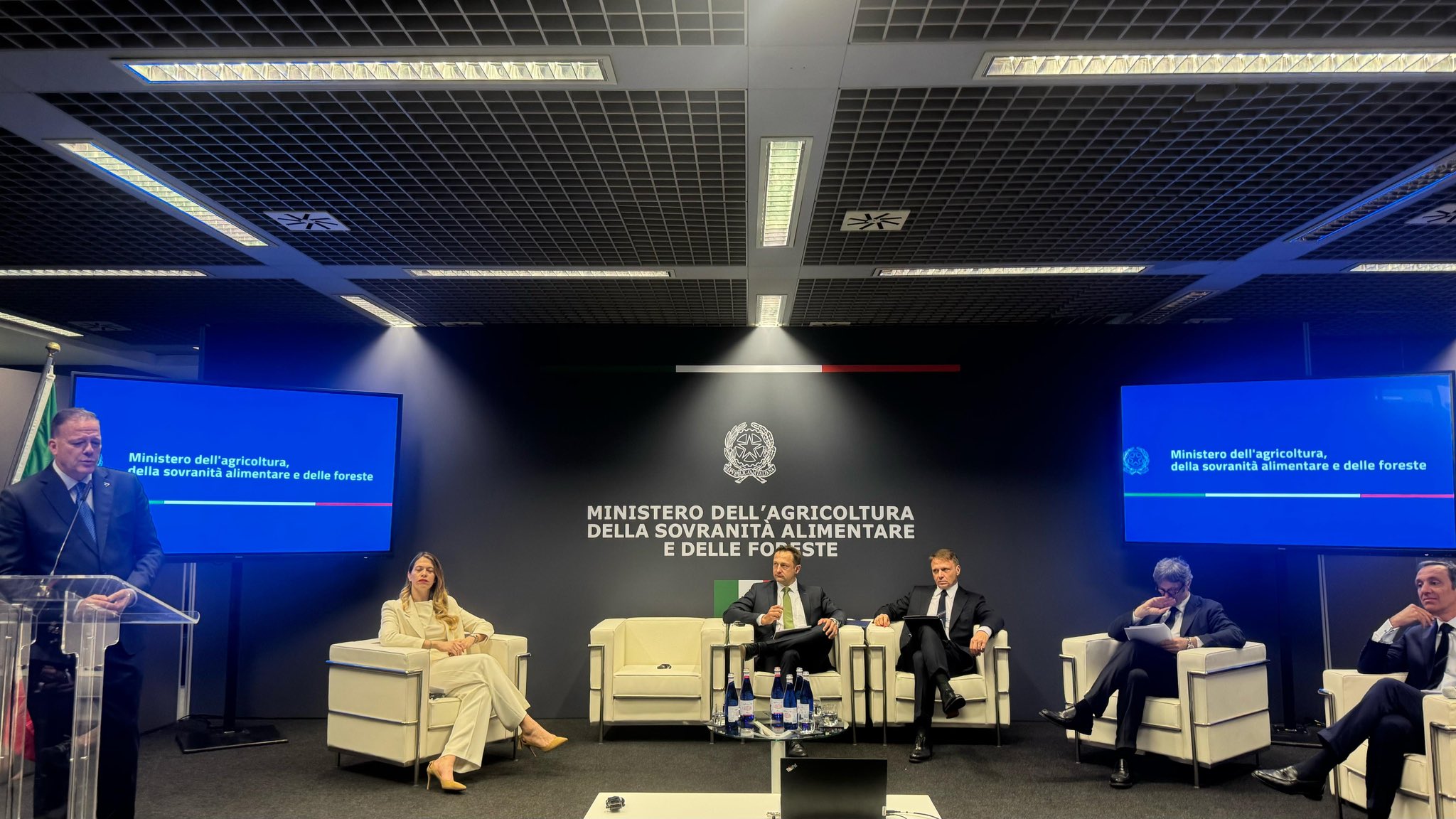Brussels – It is no coincidence that, for the first time in more than half a century, two European commissioners were in Verona for the 57th edition of Vinitaly. Only ten days ago, Brussels presented a plan to save the wine sector in crisis, including wines and other alcoholic beverages. No sooner had it been digested than the American duties of 20 per cent on the import of all European products arrived. From the fair in Verona, the EU Commissioner for Agriculture, Christophe Hansen, said he was “optimistic” for a speedy approval of the wine package. And he indicated, “We need to work harder than ever to open up new markets.”
The European Commission proposal insists on more flexibility for governments on vine planting permits and for farmers on production control, more financial coverage from the EU against climate risks, and promotion of wine tourism, as well as the promotion of wine with reduced alcohol content, through new labels such as “alcohol-free” and “alcohol-light.” “I look forward to discussions with the co-legislators,” Hansen said, “with their support, I hope we will be able to get this legislation passed as soon as possible.

Walking Hansen and Hungarian Olivér Várhelyi, EU Commissioner for Animal Health and Welfare, through the halls of Vinitaly was the Italian Minister of Agriculture, Francesco Lollobrigida. “There is great concern also on the American side about the recession that tariffs may trigger. Wine is also a very good business for U.S. operators because there continues to be a strong demand for Italian products in the U.S.. There is an ongoing negotiation with producers to try to absorb the price increases due to tariffs and leave prices unchanged,” Lollobrigida said.
According to the numbers circulated by Veronafiere, among the 30 thousand foreign operators expected to attend the international wine fair, there are also 3 thousand Americans. Despite the relaxed atmosphere typical of the Verona event, among exhibitors and buyers, the focus can only be on the earthquake of tariffs for access to the most prosperous foreign market for Italian wine, with exports reaching the value of €2 billion.
In his speech at a side event at the Ministry of Agriculture space, Hansen took a dramatic snapshot of the European wine sector: “Consumption is declining within the EU, especially for red wine. Geopolitical tensions are shaking our export markets. The past few years have been very difficult due to the COVID-19 pandemic, lower consumer confidence and an unstable international situation. Increasingly extreme weather conditions have strained our vineyards.”

A vale of tears, on which Trumpian tariffs are now being inflicted. “However, it is not too late to address concerns through negotiations. We will work to reduce barriers, not increase them. That is why we must work harder than ever to open new markets and strengthen existing ones: Mercosur, India, Canada, and Japan, which I will visit in June as part of a high-level mission. All my efforts will be focused on creating new opportunities for European producers,” the commissioner promised again.
Yesterday (April 6), at the opening of the fair, the national wine industry associations—Agricultural Cooperatives Alliance, Assoenologi, CIA-Agricoltori Italiani, Confagricoltura, Copagri, Federdoc, Federvini, and Unione Italiana Vini—reiterated in unison “strong concern about the impact resulting from the introduction of U.S. tariffs on European products.” In a joint statement, they called on Rome and Brussels to “work with determination to support the multilateral dialogue with the U.S. authorities and to reach as soon as possible at least a suspension of the application of tariffs.”
English version by the Translation Service of Withub

![I ministri responsabili per il Commercio riuniti per discutere la risposta ai dazi di Donald Trump [Lussemburgo, 7 aprile 2025. foto: European Council]](https://www.eunews.it/wp-content/uploads/2025/04/commercio-250407-350x250.jpg)






![La sede del Museo di arte orientale a Venezia [foto: Mao]](https://www.eunews.it/wp-content/uploads/2025/04/ca-pesaro-2-120x86.jpg)
![[foto: Vitold Muratov/Wikimedia Commons]](https://www.eunews.it/wp-content/uploads/2025/04/passeggini-120x86.png)